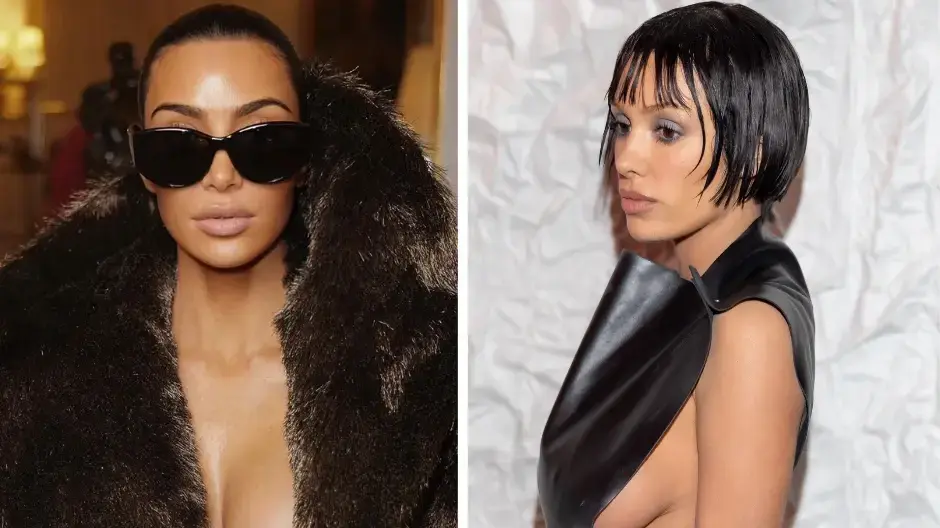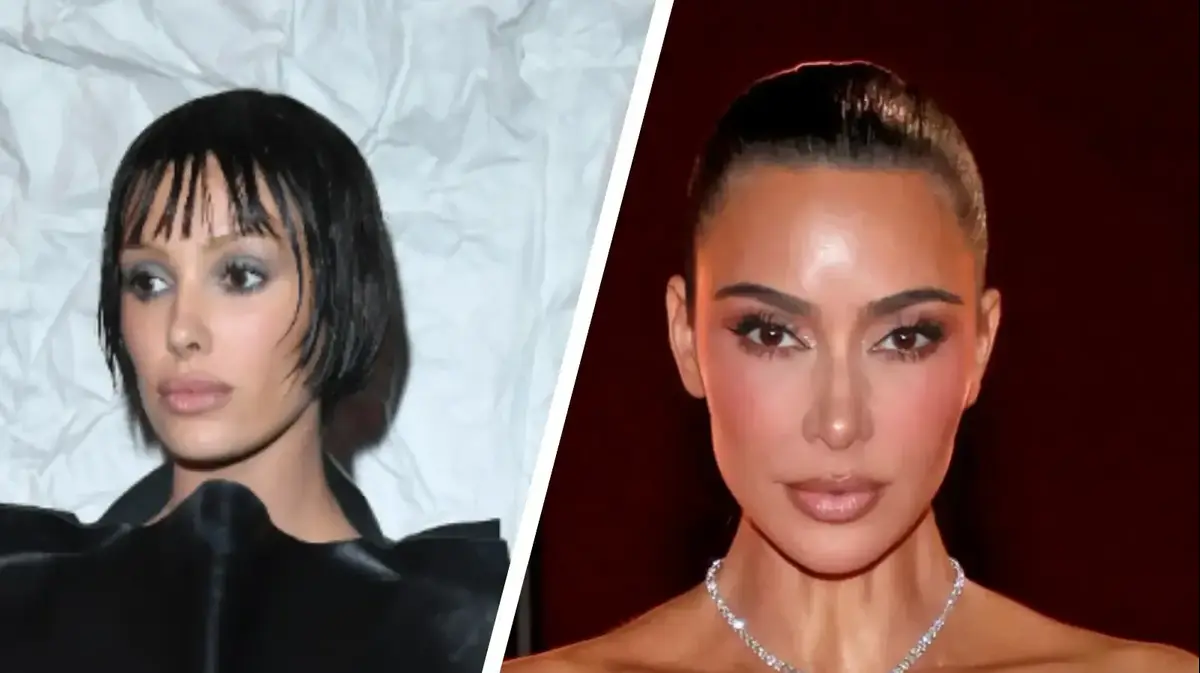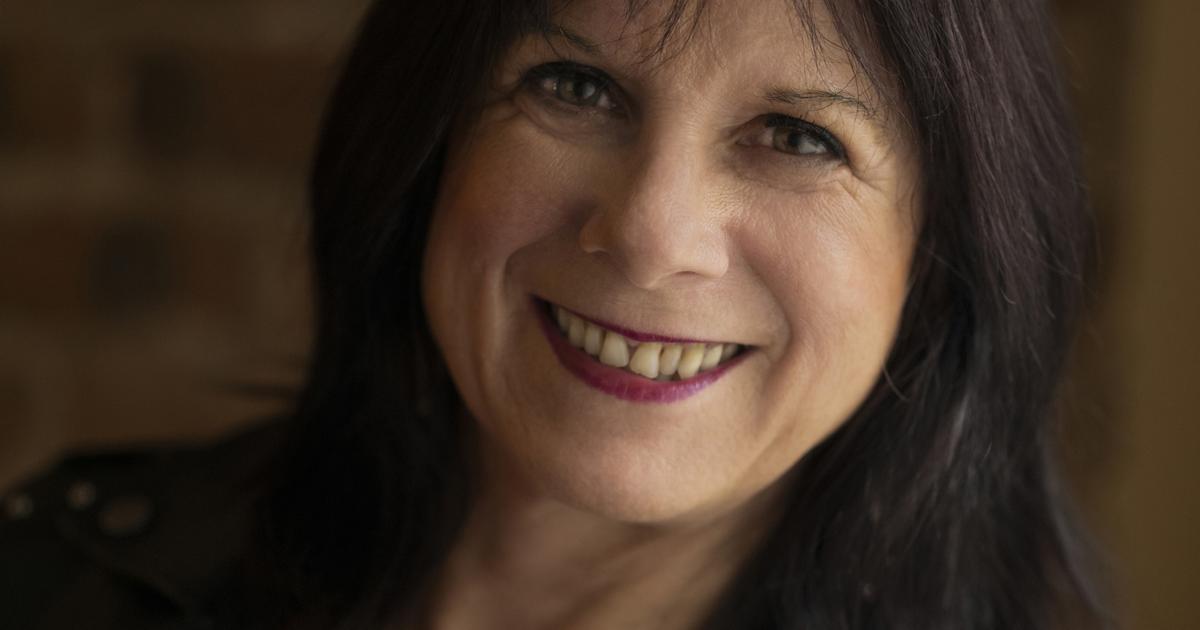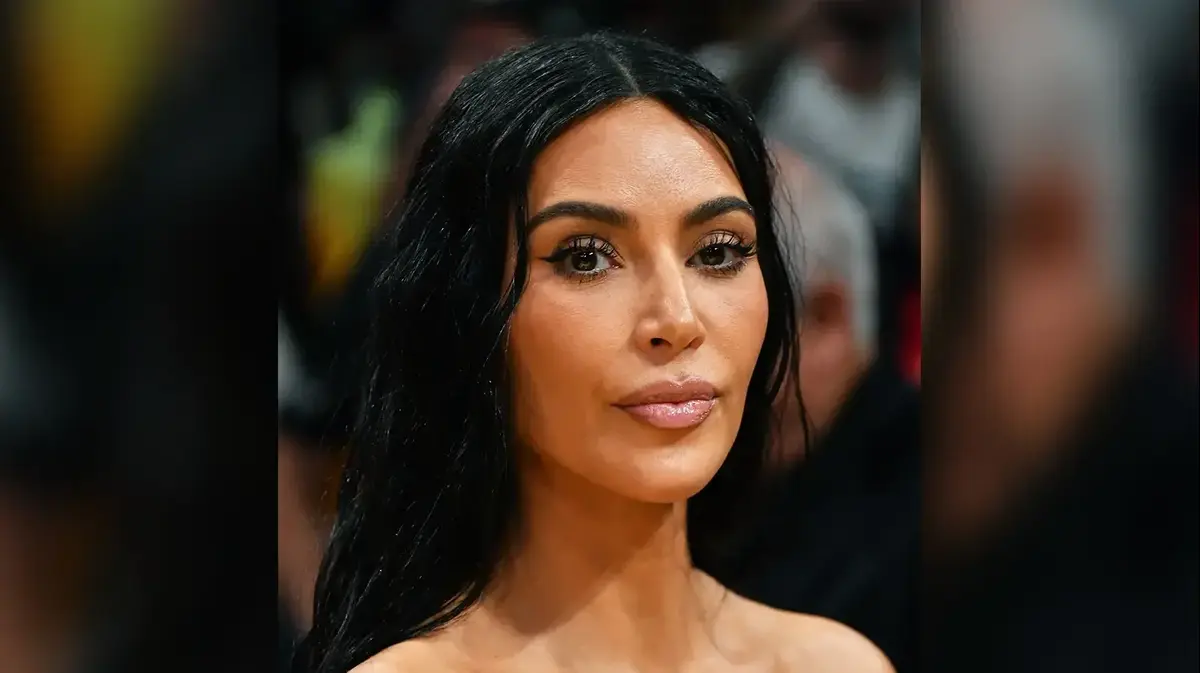Alison Jackson, 62,'s pictures are always a little too perfect or too funny to be true. Her photos show the Queen on the toilet and Mick Jagger as a good househusband, Prince William tears up his brother's memoirs, and Donald Trump sits in the sauna with Boris Johnson. However, these are only the doubles of royals, celebrities and politicians. Jackson finds celebrity twins so good, you might think the pics are real. Jackson is a star herself, especially in her native UK. The artist created entire programs for the BBC in which she used doubles for her satire. She is best known for imagining Diana, Princess of Wales (posthumously) having a child with Dodi Al-Fayed. A video in which she made Diana spread her legs like Sharon Stone in "Basic Instinct" also didn't go down well with everyone. Some consider their art vulgar, others downright subversive. Real celebrities have long since had her photographed, and in the art scene everyone agrees: Jackson illustrates how the boundary between reality and fiction is becoming increasingly blurred.
A show of Jackson's photos and other works can now be seen in the NRW-Forum Düsseldorf ("Truth Is Dead", March 3rd to May 14th).
SPIEGEL:
Ms Jackson, you photograph people who look like famous people.
How do you get your doubles?
Jackson:
I'm always on the lookout, but it's a nightmare.
I follow people on the street, talk to them in restaurants or at parties.
This also leads to confusion because real celebrities do not necessarily look like them.
SPIEGEL:
What do you mean by that?
Jackson:
I once went up to a man and said, 'We could make a George Clooney double of you.
Do you want to be on my TV show?' But it was the real George Clooney.
If you or your readers know someone who looks like a famous person, please get in touch with me.
We've been looking for a Heidi Klum for ages.
SPIEGEL:
Your regular analyzes of the British royal family are legendary.
Its members rarely get off well, at least they don't usually come across as particularly distinguished.
Do you have anything against the monarchy?
Jackson:
Absolutely not.
The monarchy is fantastic, all the pomp, the pomp, the costumes.
It's a wonderful spectacle and makes Britain a lot of money.
The royal family is just part of the image of our fun little island.
And its members raise their voices for really important issues, such as the climate.
MIRROR:
Do you have a favorite royal?
Jackson:
I did, it was the Queen.
I liked that the monarchy was led by a woman.
Now we have King Charles, followed by Prince William, and both are traditionalists, not innovators.
We'll have to wait and see if little George will refresh the royal family sometime.
SPIEGEL:
In your pictures, the family often appears grotesque, sometimes simply mortal.
The Queen under the drying hood, the Princess of Wales devouring tabloids, Prince William beating up his brother Harry.
All of this should not please the court.
Jackson:
The court is to some extent to blame.
This monarchy shrouds itself in silence, yet tempting us to guess.
The Queen in particular was very adept at providing the public with a blank canvas on which to project our image of her.
William seems to want to follow her in this respect, we know little about his personality.
So there is speculation.
SPIEGEL:
Why are you participating?
Jackson:
I'm trying to pop the bubble and think about how celebrities act outside of the public eye.
Or how we imagine her, the drinking, smoking Camilla, for example.
Most royals are very social types because they were raised to meet people, to chat, to party.
Your parties must be great.
Enlarge image
Jackson's "Brotherly Love"
Photo: Alison Jackson
SPIEGEL:
Has the court ever reacted to your pictures?
Jackson:
Of course not.
However, Camilla should own my photo books.
SPIEGEL:
You have an excellent network.
Have you ever been invited to her place?
Jackson:
No, unfortunately not.
I've also put out feelers on several occasions because I'd like to photograph the real Prince William.
But that's how celebrity works, and that's what my work has been about for many years: the person behind the image eludes us, we'll never get to know them.
Even if we really want that.
SPIEGEL:
Why do we even want that?
Jackson:
Because we believe they have better lives than we do.
And we hope it can rub off on our gray lives as we devour all about them.
That's where photography comes in: it's the sugary bait that whets our appetite.
Images stimulate our imagination.
We look at celebrities in magazines, on Instagram or YouTube.
I would say the media has created a huge, dangerous phenomenon here.
SPIEGEL:
Was that the media - or rather the celebrities themselves, with the help of their advisors or managers?
Jackson:
First it was the media.
In this country, they were after Lady Diana like no other person before, and then she started to play the game a little bit.
She hoped she could have her own voice that way.
It all started with her.
MIRROR:
What do you mean?
Jackson:
Before Diana, we didn't have any real celebrities in Great Britain, but neither did you in Germany.
Because of her celebrity, a lot of people have realized that you can build an entire career on a new kind of self-expression.
Suddenly, reality stars emerged who would do anything to get into the media.
SPIEGEL:
You have this famous photo of a woman who looks like Diana and is holding out her middle finger.
Was Diana really rebellious?
Jackson:
The press of the 1980s and 1990s was largely male, and they hated Diana, at least the living one.
But for a long time, women have been thinking quietly that she's someone who puts out the middle finger and says, "Fuck you!" in her own way.
From my perspective, she was almost a feminist icon.
SPIEGEL:
The royals also play a role in your new exhibition.
Why is it titled "Truth Is Dead"?
Jackson:
Because no one knows what truth looks like anymore.
You think you're looking at something real, but in reality it's constructed.
But even staged pictures get their own reality in our imagination, we think it could be like that.
SPIEGEL:
Can photography depict reality at all?
Jackson:
It has, at best, a grain of truth.
But even documentary images always show only a section of reality.
In the 20th century this was often disputed, even such history-changing recordings as that of the so-called napalm girl in the Vietnam War triggered such discussions.
Today - and this is really scary - people seem almost indifferent to whether they see something true or false.
SPIEGEL:
Isn't it all less a problem with the images than with the audience, who have lost their moral compass?
Jackson:
We are dazzled by celebrity and how it is portrayed.
Think Kanye West.
Do people really care about his anti-Semitic statements?
His fame outshines everything, there are enough people who would like to take a selfie with him.
It's like Trump.
SPIEGEL:
Both West and Trump have a permanent place in your work.
You've shown Trump's doppelganger as a friend of the Ku Klux Klan or with women wearing bikinis at best.
Jackson:
There was a bizarre situation in October 2016, shortly before the upcoming US elections.
We had a fake Trump drive around Manhattan in an open-topped Bentley and, yes, there were a few scantily clad girls walking around too.
The police kept stopping our column to prevent us from getting near Trump Tower.
Then she preferred to escort us because the chaos was getting bigger.
Because people went crazy at the sight of our Trump.
They wanted to take selfies.
Anyone want selfies with your chancellor?
SPIEGEL:
You worked with an Angela Merkel double for a long time, what about an Olaf Scholz double?
Jackson:
I'd like one.
On the other hand, I really wonder who your chancellor is anyway.
Nobody seems to know that.
Don't you agree that it should be more visible, more tangible?
I'm afraid he's just as boring as we are.
On the other hand, this impression is probably intentional and could testify to his cleverness.
At least things are going better in Germany than here.
Brexit is a disaster for Britain.
SPIEGEL:
Your pictures are very entertaining and at the same time should warn against the fascination of pictures. How does that fit together?
Jackson:
I'm classified as a comedy, which I don't like at all because my photos are entertaining but not always funny.
As soon as I take tougher pictures, and those are my favorites, the press ignores them.
SPIEGEL:
Which ones, for example?
Jackson:
Some time after September 11, 2001, I did an exhibition with motifs related to Bin Laden. At that time, I even received protection from an anti-terrorist unit.
But of course you can also achieve a lot with a slightly harmless sense of humor.
SPIEGEL:
During your career you have sparked some controversy.
Do you regret any picture you took?
Jackson:
No, not really.
Why should I regret anything?
SPIEGEL:
Because times and attitudes are changing very quickly.
Jackson:
My photos reflect the perspective of a majority at a given time.
In this respect they are almost historical documents.
I don't judge.
I'm just saying, this is the way you see this celebrity.
That's how you saw Paris Hilton back then and that's how Boris Johnson.
SPIEGEL:
You imitate the aesthetics of the boulevard, of the paparazzi.
Don't you add value to the whole celebrity circus with your amusing photos?
Jackson:
Absolutely not.
I seriously question this celebrity cult, I want to expose it.
Everyone knows that my works do not depict reality.
SPIEGEL:
Social media and image editing apps have further changed our perception.
What influence does this development have on your art?
Jackson:
There are new ways to lie, but the basic problem remains the same.
And that's what my work is about.
SPIEGEL:
Anyone can take and publish photos at any time, what does that lead to?
Jackson:
We're all paparazzi, even the youngest.
I teach photography to underprivileged children.
Even four-year-olds are visually competent and able to take beautifully composed shots, they grew up with photography.
Do you know how I can direct babies on shoots myself?
I turn on the phone's camera and show them the screen so they can see themselves.
Then they crawl after that phone, happy and giggling.
They understand images before they can speak.
SPIEGEL:
Do people still understand the difference between the staging of reality and reality itself?
Jackson:
Theoretically yes, but at the same time the boundaries are becoming increasingly blurred.
When Marilyn Monroe looked at the publicity photos of herself, she said, "Who is this woman?" She knew it wasn't her.
She didn't want to be a bombshell, she wanted to show what a good actress she was, and she was, a hard worker in her field.
Today, real and fake are even harder to tell apart.
SPIEGEL:
You dedicated a whole series of photographs to Marilyn Monroe, but you also created pictures of a fake Kim Kardashian.
More sex bomb than in your pictures is not possible.
Why such depictions?
Jackson:
Kim Kardashian controls her own body, she uses it for her fame, for her commercial interests.
Do I like that?
No, but it seems to be what she wants.
And she did change the landscape of the female body, after all.
Women used to have to be thin as drainpipes.
Now they can be as round as they like.
What really bothers me is that everyone has implants in their butts now.
SPIEGEL:
One of your shots of the fake Kardashian shows a huge buttocks.
Jackson:
I think it's amusing to watch, that huge butt in the pool is silly.
Like Donald Trump, Kim Kardashian has turned himself into a cartoon character.
Kardashian is a Jessica Rabbit and Donald Trump is one of the Flintstones.
But many women want to look like Kardashian, but men don't want to look like Trump.
SPIEGEL:
Being in the public eye all the time must be exhausting.
Any theory what drives someone like Kim Kardashian?
Jackson:
A lot of people think it's the money.
I think it's fame and the power that comes with it.
People like Kim Kardashian are mini gods.
They know that too, but they don't understand the responsibility that comes with it.
Many people no longer live their own lives, they feed on the lives of these celebrities, it's like voluntary brainwashing.
You follow these people like saints like celebrity is a religion, some even go to plastic surgeons for it, but because they don't have as much money as the Kardashians, sooner or later things go wrong.
You should rather live your own life.
Enlarge image
Jackson's »Elton Crown«
Photo: Alison Jackson
SPIEGEL:
You also photograph real celebrities, how does that fit into the concept?
Jackson:
It adds to the confusion, like I photographed the original Elton John with a fake queen.
I want to go more in that direction and mix.
SPIEGEL:
What are you currently working on?
Jackson:
The coronation of King Charles is just around the corner.
He's been living towards this moment for 74 years, so it's going to be stressful.
That's why I'm going to show him as a bundle of nerves.
SPIEGEL:
Ms Jackson, thank you for this interview.









